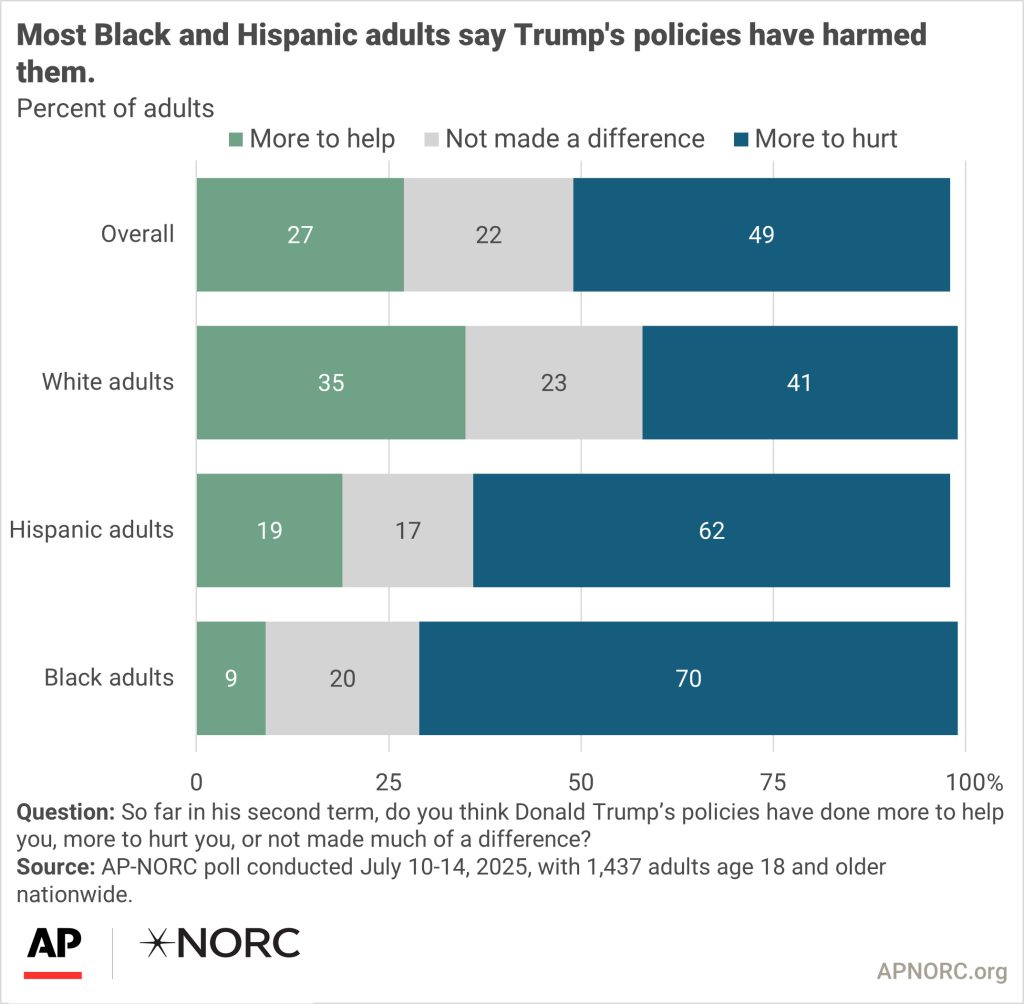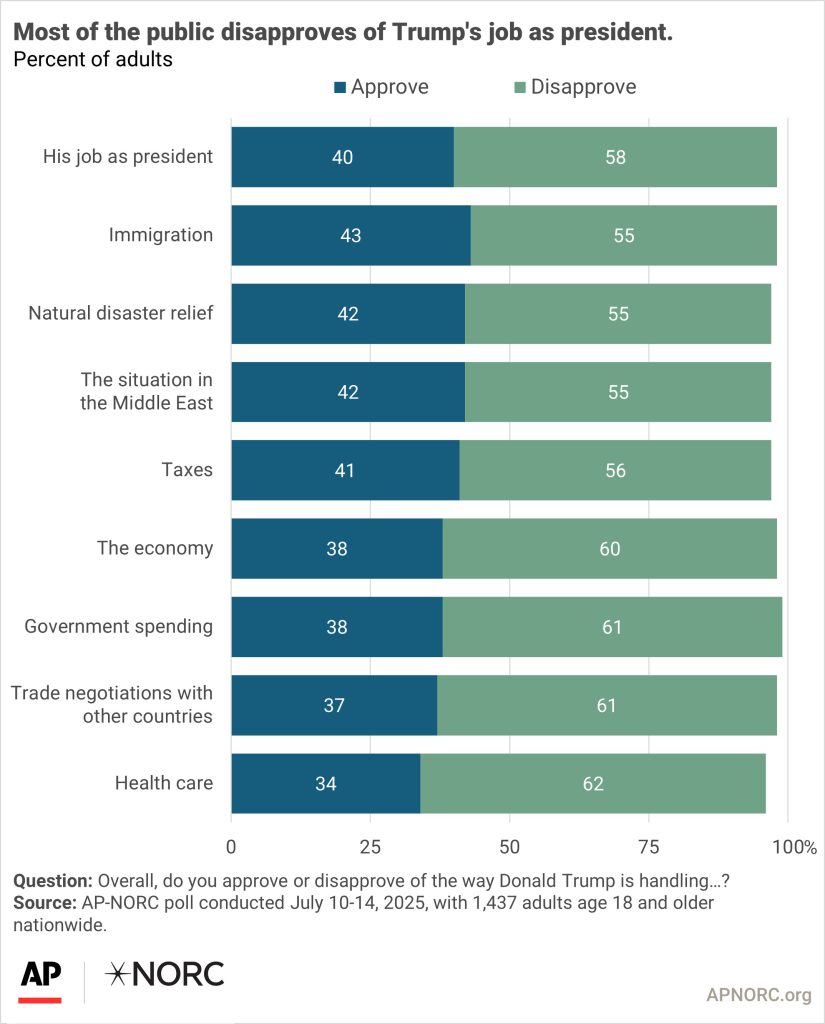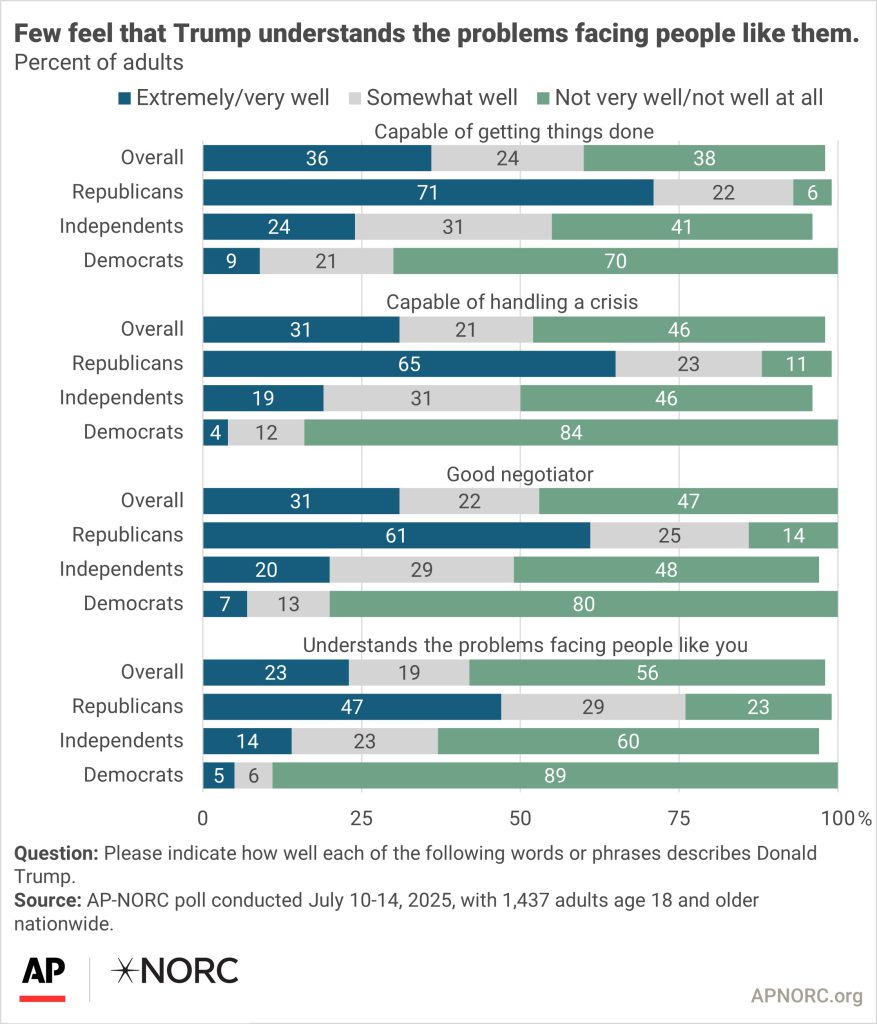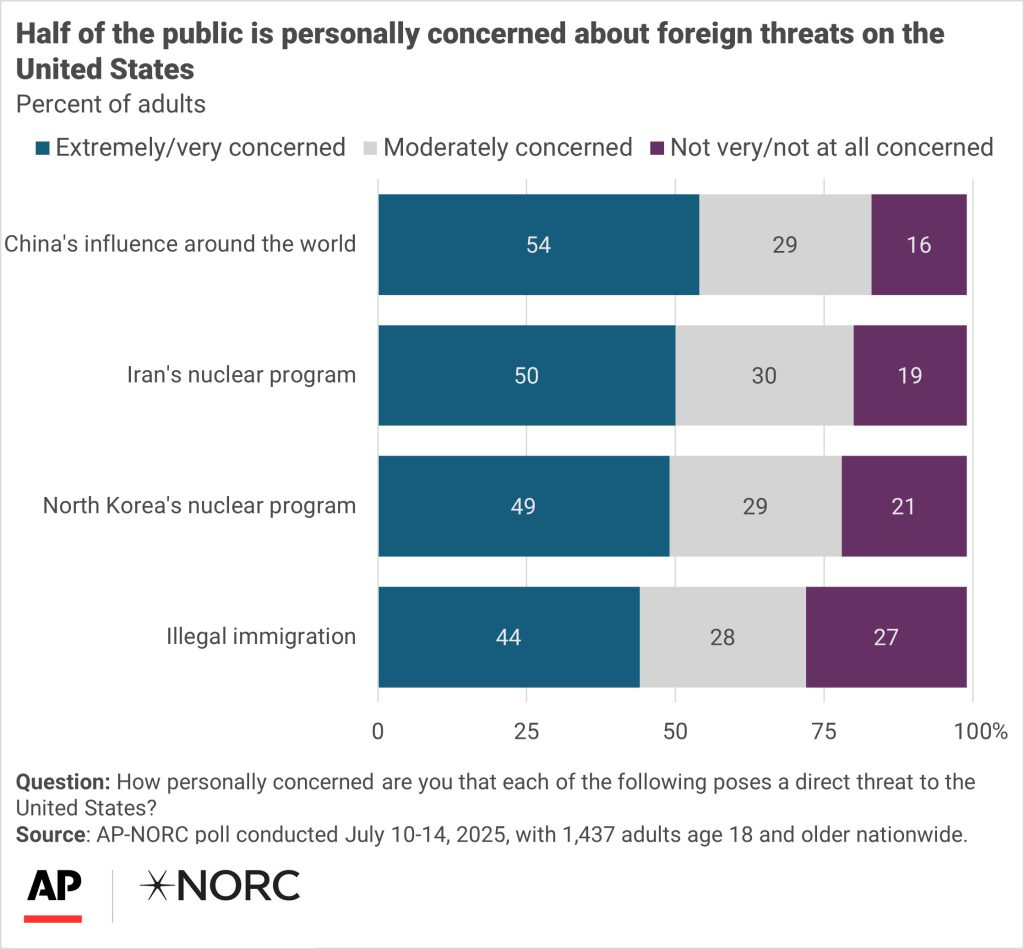
July 17, 2025
People are more likely to say Donald Trump’s policies have done more to hurt than to help them since his second term began. While most consider the president as least somewhat effective at getting things done, fewer think he understands their problems.
Four in 10 adults approve of how Trump is handling his job as president, just about the same as seen in the AP-NORC June 2025 survey. But the public has become more negative about how the president is handling government spending compared with earlier this year.
Overall, 49% of adults feel Trump’s policies have done more to hurt them. One quarter feel Trump’s policies have helped, and another quarter say they have not been impacted.
Racial communities have differing perspectives on whether Trump’s policies have helped or harmed. Few Black adults or Hispanic adults think Trump’s policies have helped them compared with about a third of white adults. Seven in 10 Black adults and 6 in 10 Hispanic adults feel Trump’s policies to date have done more harm than good for them personally.

Most adults, 58%, disapprove of Trump’s job as president overall and 40% approve. Partisans continue to hold strong feelings about Trump. Among Republicans, 78% approve including half who strongly approve of Trump’s performance as president. Across the aisle, 91% of Democrats disapprove of Trump’s job overall including 80% of Democrats who strongly disapprove.
Approval of how Trump is handling most issues is similar to his overall job approval, except for his handling of health care where just 34% approve. There are also clear partisan divides in views on the Trump’s handling of key policy areas. About 9 in 10 Democrats disapprove of the way Trump is handling the economy, immigration, government spending, health care, taxes, trade, natural disaster relief, and foreign relations in the Middle East. Conversely, about three quarters of Republicans approve of Trump’s handling of these issues.

Six in 10 think “capable of getting things done” describes Trump at least somewhat well. About half say a “good negotiator” (53%) and “capable of handling a crisis” (52%) also describe him at least somewhat well. Fewer (43%) think understanding the problems of people like them describes Trump at least somewhat well.
Again, there are clear partisan divides in views with large majorities of Democrats viewing Trump negatively and most Republicans viewing Trump positively. Still only about half of Republicans feel Trump understands the problems they experience.

Most of the public disapprove of Trump’s handling of foreign relations via trade negotiations and the situation in the Middle East. And half are very or extremely concerned about a range of foreign threats to the United States including Iran’s nuclear program, North Korea’s nuclear program, and China’s influence around the world. Forty-four percent are concerned about a direct threat to the country from illegal immigration.

Adults ages 45 years and older are more likely than younger adults to be concerned about foreign threats on the United States from Iran, North Korea, or China.
The public is similarly concerned about potential threats from Iran or North Korea’s nuclear programs regardless of partisan identification—both Republicans and Democrats view the issues similarly. Republicans are more likely than Democrats to be concerned about China’s global influence.
Partisan differences emerge regarding personal concern that illegal immigration poses a direct threat to the United States. Overall, 44% of adults are very or extremely concerned that illegal immigration poses a threat. Among Republicans, 6 in 10 feel this way compared with 2 in 10 Democrats.
The nationwide poll was conducted July 10-14, 2025 using the AmeriSpeak® Panel, the probability-based panel of NORC at the University of Chicago. Online and telephone interviews using landlines and cell phones were conducted with 1,437 adults. The overall margin of sampling error is +/- 3.6 percentage points. Respondents age 18-29 were sampled at a higher rate than their proportion of the population for reasons of analysis. The overall margin of sampling error for the 386 interviews completed with respondents age 18-29 is +/- 6.6 percentage points.
- Suggested Citation: AP-NORC Center for Public Affairs Research. “People are more likely to say Trump’s policies have hurt them than helped them” (July 2025). https://apnorc.org/projects/people-are-more-likely-to-say-trumps-policies-have-hurt-them-than-helped-them/







